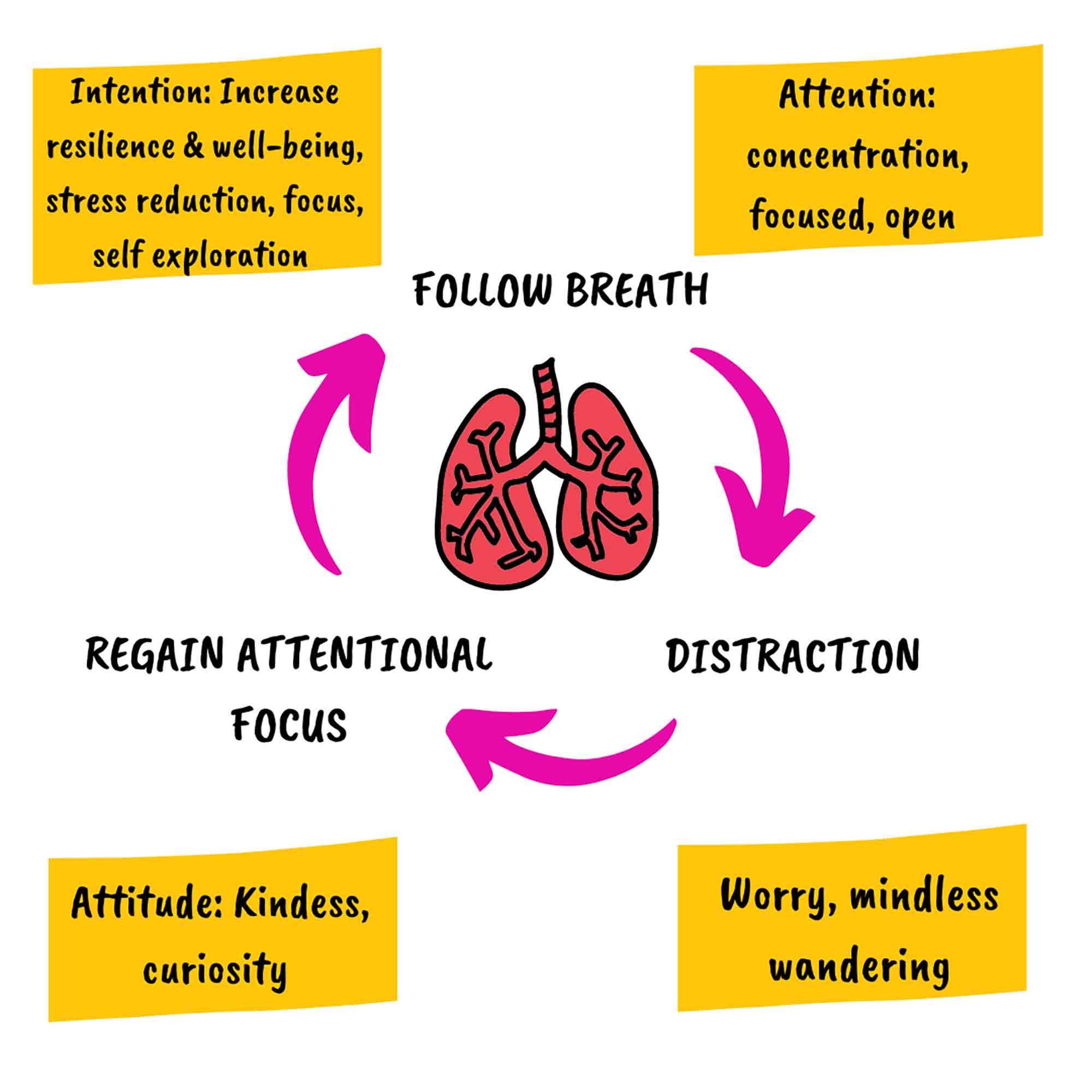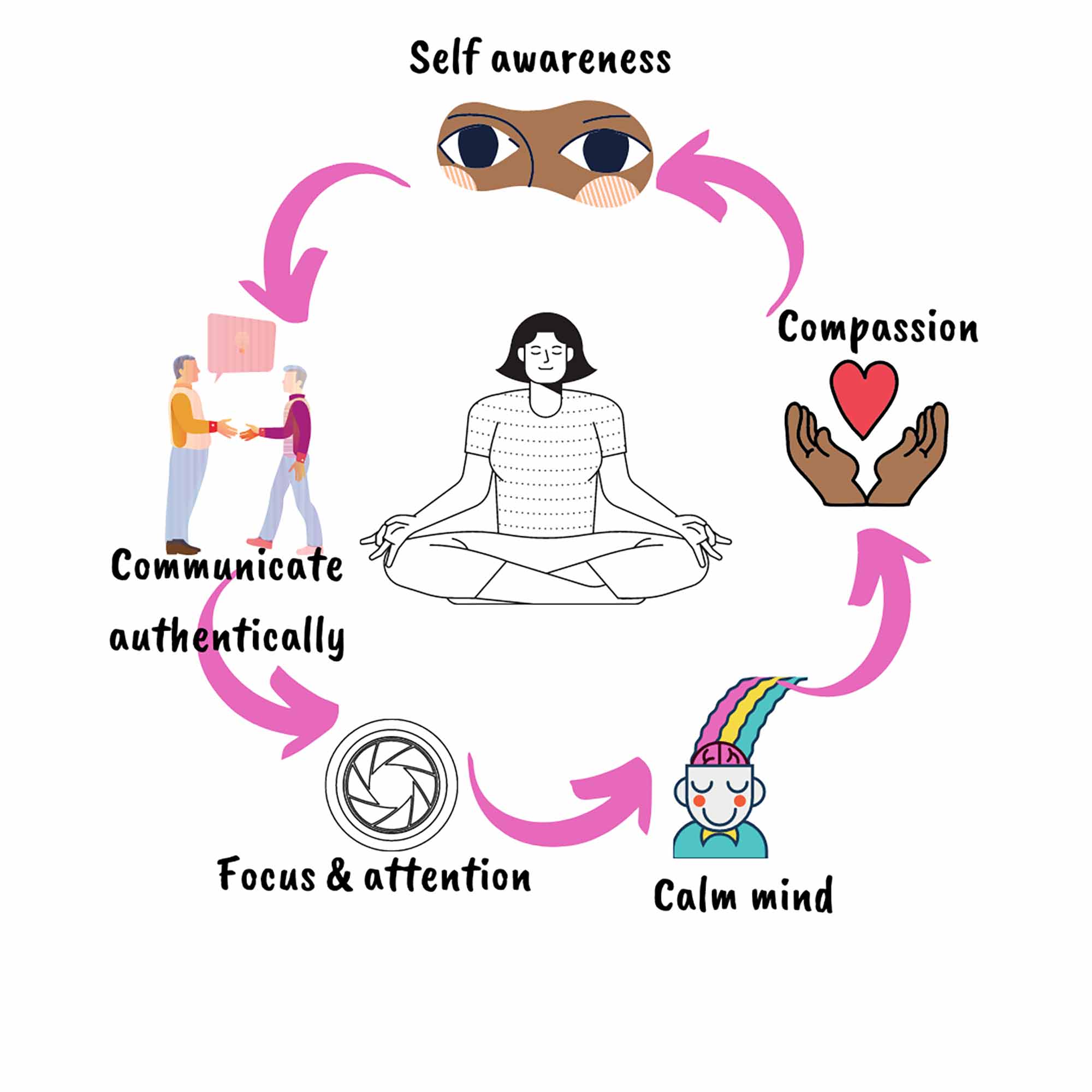 Mahrukh Khwaja discusses how mindfulness can suppress anxiety in dentistry and replace it with optimism and courage.
Mahrukh Khwaja discusses how mindfulness can suppress anxiety in dentistry and replace it with optimism and courage.
Do you regularly experience negative thoughts? Do you catch yourself chewing over a patient interaction even when you’re back at home? Or do you find it difficult to be present after a stressful dental day?
If any of these thoughts resonate with you, you are certainly not alone. In fact, I often start with self compassion with my dental coaching sessions as the theme of perfectionism and rumination is a recurring frustration.
A common myth around our thoughts is that they are accurate, true and must be obeyed. In fact, whenever any event occurs, our brain generates a series of mental images that are spontaneous, fleeting, often feel unquestionable and reflect our core beliefs formed in childhood.
These are known as automatic negative thoughts (ANTs) or as I affectionately call them, the board of directors that live in our head. ANTs were evolved to keep us safe from predators and sabre tooth tigers. In today’s modern world, these ‘directors’ are thinking traps that can hijack our brain.
In this article, I want to help you increase your well-being through using mindfulness as a method to diffuse anxious thoughts and thrive. We will explore how as dental professionals we can exercise the muscle of self compassion and approach adversities with greater optimism, hope, courage and kindness.
Self-compassion – fostering self-love through mindfulness
Self-compassion is the top positive emotion we need buckets full of in times of the COVID-19 pandemic. Many dental professionals have Type A personality traits and perfectionistic thoughts.
Fostering a kinder inner voice, therefore, is essential when it comes to resilience and maintaining our wellbeing. The leading researcher, Kristin Neff describes three key components of self-compassion (Neff K D, 2003).
 Self-compassion over self judgement
Self-compassion over self judgement
Self-compassionate individuals acknowledge their humanity. They appreciate that flaws, failures and experiencing life’s adversities are inevitable.
Therefore, they are kind to themselves when confronted with painful experiences rather than flagellating themselves with self-criticism when they fall short of set ideals. When a sympathetic and loving approach is adopted, greater emotional regulation is experienced.
Common humanity over isolation
It’s certainly very easy to fall into irrational thinking patterns when things do not go our way. We may believe that we are the only people suffering.
However, humans are imperfect and failures are part of the shared human experience. As a result, self-compassionate people appreciate common humanity rather than something that occurs only to ‘me’ alone.
Mindfulness vs over-identification
Mindfulness is paying attention, with non judgement to the present moment. It’s not getting swept up by our thoughts and emotions, nor trying to avoid them.
When we are over identified with our thoughts, we are prone to getting swept up by their negative reactivity. This is because we believe those thoughts to be true.
Training the muscle of attention, therefore, results in us taking the observer role. This lends itself to enhancing our emotional regulation.
A closer look at mindfulness
Mindfulness is a tool that transforms suffering. Through practice you become aware of this amazing ability to sit with discomfort and very heavy thoughts with a real sense you can cope.
Far from just a pain reliever, mindfulness is at its core an awakening of the senses. It’s moving from autopilot mode, where we are doing things mindlessly, to being fully engaged with our reality.
Our minds are a constant chatter of thoughts of the past or future. Mindfulness allows us to step away from the internal chatter and step into the present world. We start noticing the beautiful details of our lives.

The process of mindfulness
The key attitudes mindfulness practice incorporates, as detailed by the founder of mindfulness, Jon Kabat Zinn, are having a here-now mindset, being non-judgemental, patience, compassion, using a beginner’s mind, acceptance, letting go and gratitude. This reiterates that mindfulness is indeed more than a stress reliever. Mindfulness gives us a whole new approach to life that actively invites more positive emotions; self-compassion, gratitude, curiosity and acceptance
Key benefits of mindfulness
The neuroscience research has finally caught up with the long-held belief that mindfulness is beneficial. In fact, the last decade has seen numerous randomised controlled studies in all settings. These validate over and over that mindfulness indeed can change the brain structure in positive ways.
One interesting study compared novice meditators with long term mediators. The scientists discovered that in just eight weeks, an increase in the prefrontal cortex – the ‘human’ and logical part of our brain – and a reduction in the grey matter of the ‘chimp’ (amygdala) was reported (Gotink et al, 2016).
This is phenomenal that mindfulness can shrink the stress responder of our brain, become less responsive, and enhance our executive function abilities. For example, memory, attention, planning and problem solving.
Leaning into our understanding that the brain is neuroplastic, the more we train the muscle of attention and self-compassion, the more new neural pathways for attention and self-compassion are created.

Mindfulness micro practices for the busy dental professional
There are many different types of mindful practice. Infusing mindfulness in all areas of our day, starting small can be beneficial when developing this new positive habit.
- Mindful living – this is an example of informal practice, such as brushing your teeth or showering. In this practice, you use routine activities where you are normally in automatic mode, and focus on that experience using the five senses. For example, sight, smell of the toothpaste, taste, textures of the bristles against your teeth, and the sounds of brushing
- Mindful eating – for the first three bites become aware of the five senses
- Mindfulness two minutes – start in a seated position, shoulders relaxed, hands on thighs and close your eyes. Ground yourself by tuning into your senses. Bring your attention to the inner experience by asking yourself what your internal weather is. Now bring your awareness to the breath. As you notice the mind wandering, which is a very normal quality of the mind, nudge your attention kindly back to the breath. This particular exercise could be so beneficial incorporated in a morning huddle or team debrief at the end of a clinical day
- Aromatherapy mindfulness – a great antidote for a busy mind and can be easily employed in between patients at work and with your nurse or at home. Rub three drops of essential oil, such as lavender, in the palms of your hands and take three deep breaths. Use the scent of the oil to anchor you back to the breath and present. Once again, ensure the exhale is longer than the inhale
- Mindfulness defusion – defuse anxious thoughts by noticing fearful, anxious thoughts and reducing their power by thinking: ‘I notice I’m having a thought that…’ This is excellent in helping you become an observer
- Mindful walking – this practice allows us to slow down and connect with nature. There has been growing research into the health benefits of forest bathing. Some studies showing a chemical released by trees and plants, called phytoncides, were found to boost the immune system.
Further tips
Mind flossing tips to help you stay on track:
- Growth buddy – adopt a growth partner to help keep you accountable and on track
- Positivity – to help counteract our mind’s natural negativity bias
- Cues – these can be visual or auditory but help us to remember to do our new brain exercises. For example, this could be a mindfulness bell on our phone at random intervals during the day to remind us to take a moment for a deep breath. Or our gratitude journal by our bedside table or growth mindset affirmation on our wall
- Piggyback new habits onto existing ones – this is an excellent way to kickstart a new positive habit
- Small steps add up – the smaller, the better when we are introducing new habits. We want to keep encouraging ourselves by successfully achieving small goals. Starting with a one minute mindfulness practice for example is absolutely a great way of introducing moments of slowing down and connecting with the present.
Emotional resilience, especially in the time of a global COVID-19 pandemic and a stress pandemic, is a very topical subject. Dentistry has taken quite the knock from both these external factors.
However, even as busy dental professionals, we can develop the mindful tools to persist despite adversities, sit with discomfort in tough times, uncover internal resources to bolster us through the journey, and grow through life’s changes.
Mahrukh Khwaja is a dentist and founder of Mind Ninja, a well-being start-up providing preventative mental health and well-being coaching for dental teams. Connect with her on instagram @mindninja.ltd or via www.mindninja.org.


